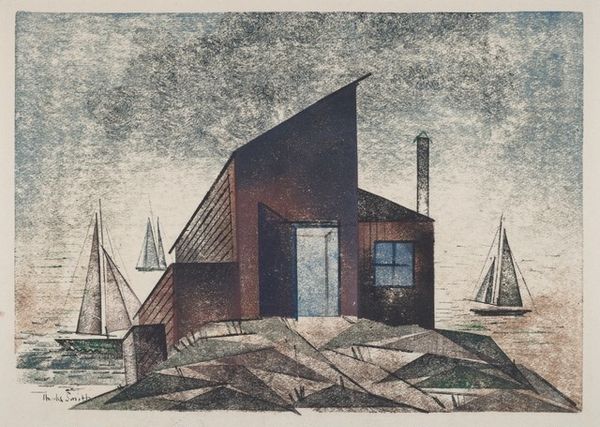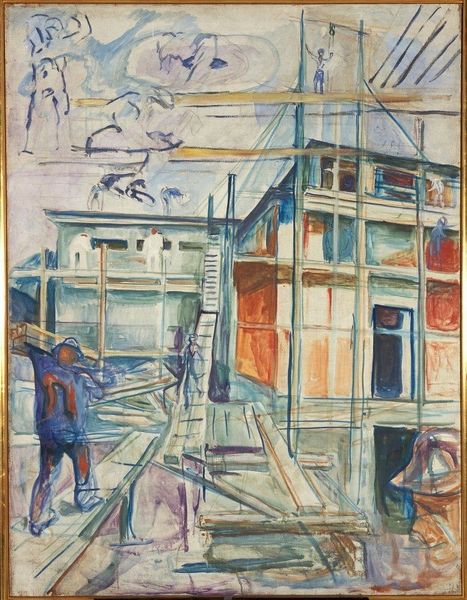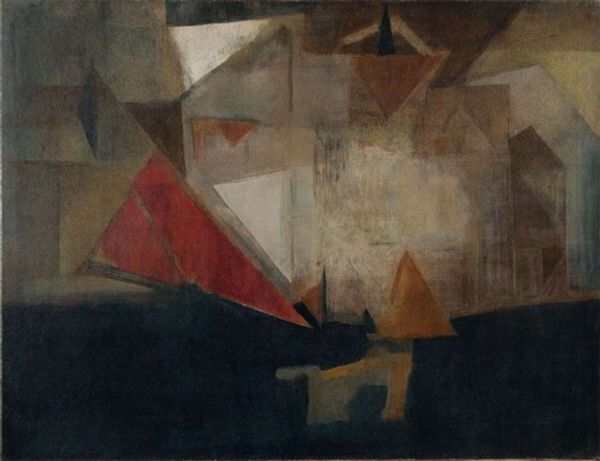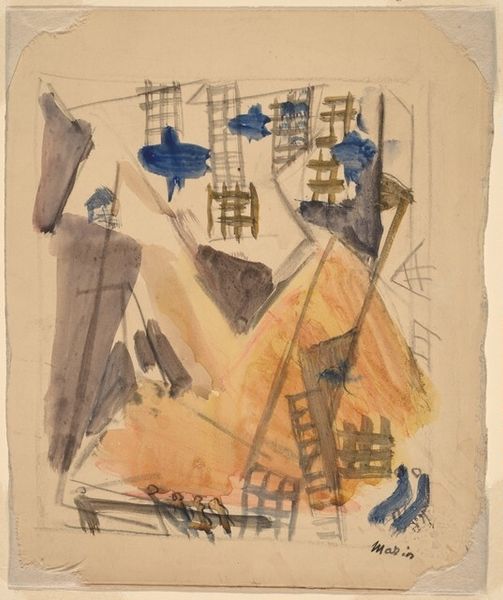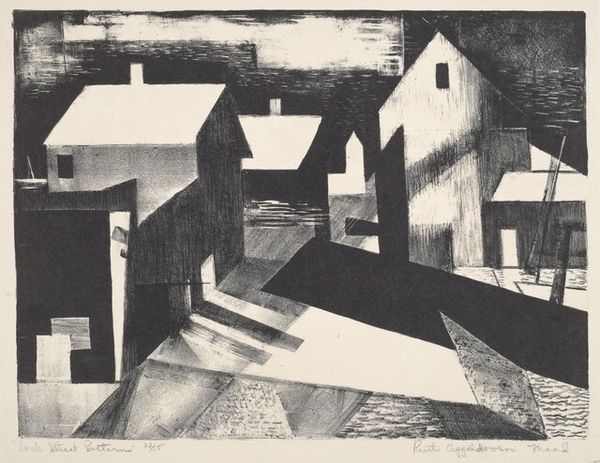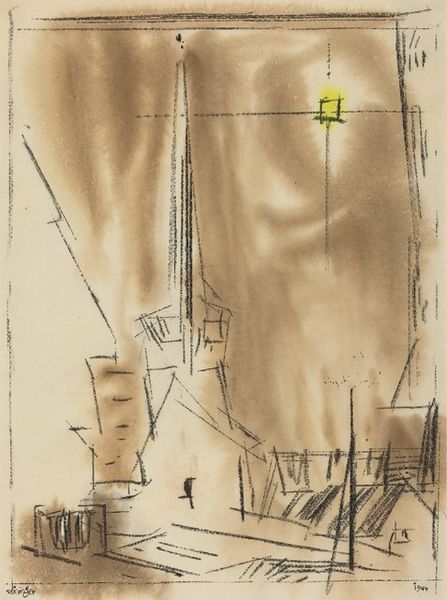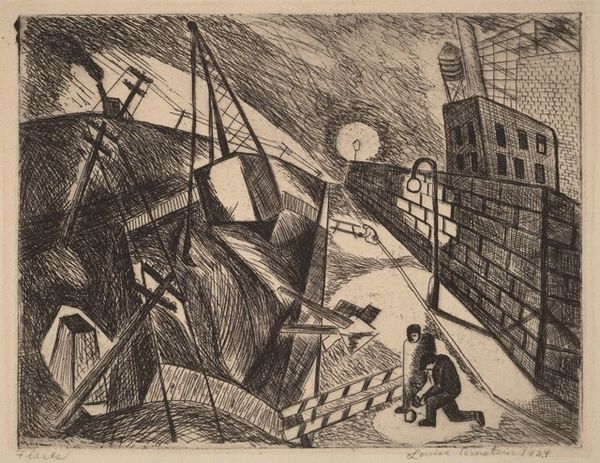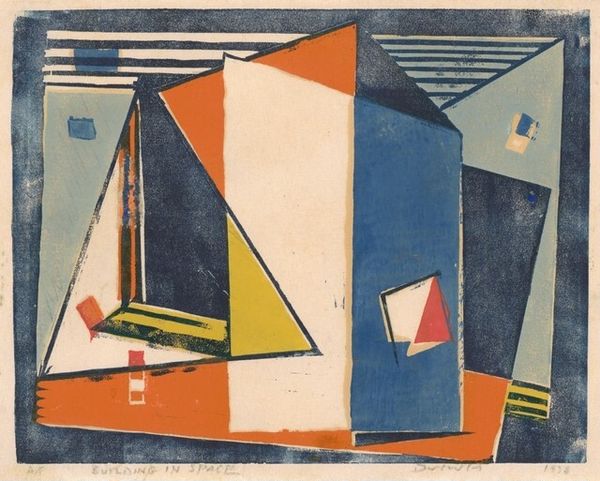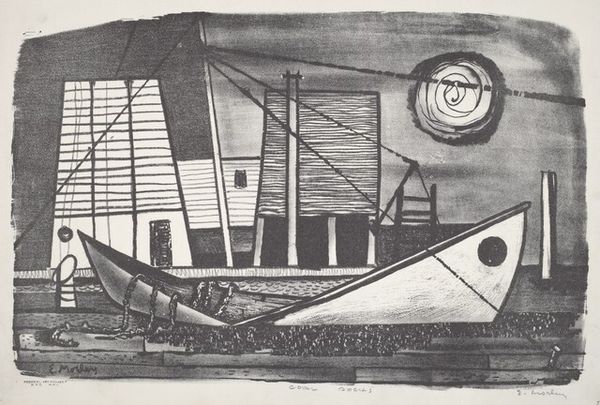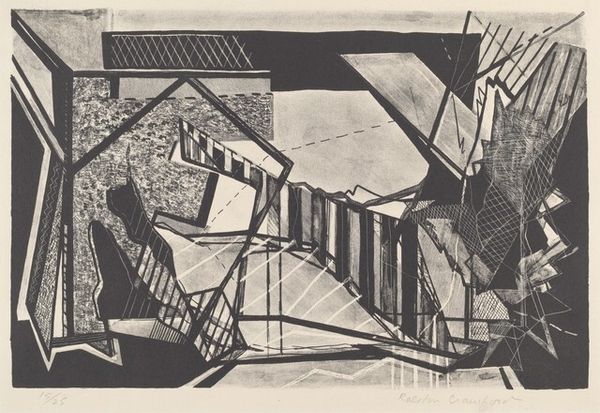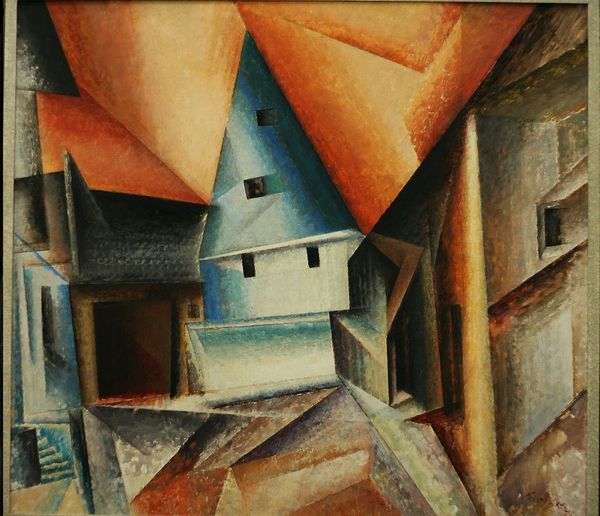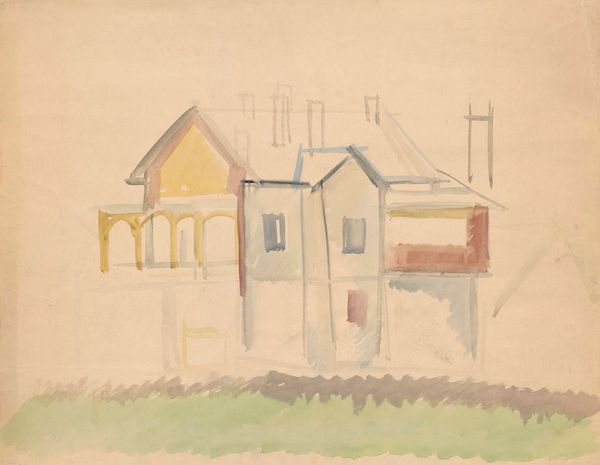
oil-paint
#
precisionism
#
cubism
#
oil-paint
#
oil painting
#
geometric
#
line
#
cityscape
#
modernism
Copyright: Public Domain: Artvee
Editor: This is Charles Demuth’s "Piano Mover’s Holiday," painted in 1919. It's an oil painting. I’m immediately struck by how geometric and architectural it feels. The title suggests a narrative, but the style is so abstracted. What's your take on it? How do you interpret this work? Curator: This piece operates at a fascinating intersection. Demuth, as a gay man navigating early 20th-century America, coded aspects of his identity and critique into his art. The industrial forms, rendered with a Precisionist clarity tinged with Cubist fragmentation, aren’t just about celebrating modernity. Instead, consider them as stand-ins for the forces of capitalism and societal norms bearing down on marginalized communities. Editor: So, you're suggesting the "holiday" isn't necessarily celebratory? Curator: Precisely. It's a potentially ironic title, suggesting perhaps a temporary reprieve from oppressive systems. Consider the stark geometry; it presents a controlled, almost sterile environment. This could be read as reflecting the constrained social spaces afforded to those living outside dominant identities at the time. Where do you see points of tension within this controlled composition? Editor: Maybe the black smokestacks contrasting against the pale sky? They almost feel like looming threats despite the overall stillness. Curator: Exactly. The tension created through these contrasts underscores the precariousness of freedom and self-expression in such a society. Demuth's "Piano Mover’s Holiday" becomes more than just an image of industrial America, it acts as a poignant commentary on the experiences of individuals pushing against the restrictive boundaries. Editor: That’s given me a whole new perspective. I was so focused on the style. I hadn't really considered the potential for social commentary embedded within it. Curator: It’s in uncovering these layered meanings that art history really comes alive. Art often serves as the critical mirror to our own society, don't you think?
Comments
No comments
Be the first to comment and join the conversation on the ultimate creative platform.
